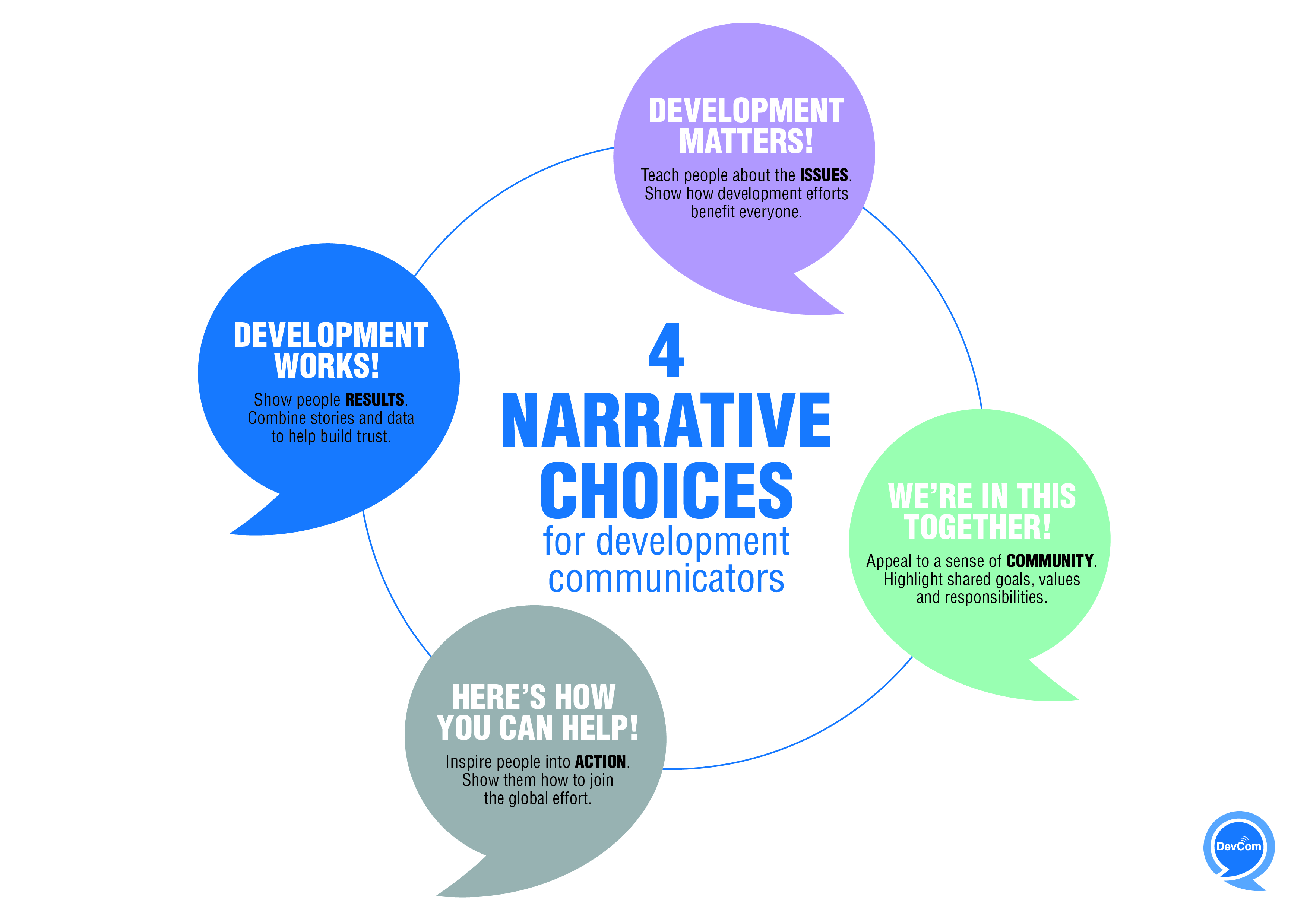What should we tell citizens about development and international co-operation?
OVERVIEW
The development community is in an identity crisis, questioning long-held assumptions about what development is, how development happens, and who makes it happen. Meanwhile, a growing number of sceptics is raising questions about the value and purpose of international co-operation.
In order to raise awareness, build public support and engage citizens, development organisations need new ways to tell the development story. They can, for example: appeal to a sense of community; focus on the results of development work; show audiences how to take action; or teach audiences about important development issues.

ADVICE & INSIGHTS
Development is often still described as a linear process, with countries moving from “developing” to “developed”, from one income category to another. This narrative on development is outdated.
- Income alone is not an adequate measure of development. Wellbeing, equality and sustainability matter just as much.
- Sustainable development is a complex, evolving process in all countries. Many countries have made immense progress but there is no “finishing line” after which countries can “put their feet up”.
- Sustainable development depends on a broad societal partnership. Alongside government action, it requires behavioral change from all citizens and stakeholders.
The dominant “North-South” narrative on development co-operation, which sees rich countries charitably lifting poor ones out of poverty, also needs to change.
- All countries and citizens have agency, with abilities – and responsibilities – to help make sustainable development happen.
- Development co-operation brings universal value. Alongside results abroad, it generates benefits at home, including jobs, health, climate action, peace and stability.
- Development co-operation is one policy among many, and represents a small proportion of public and private funding that can affect sustainable development.
In response to these narrative shifts, development organisations need to tell their institutional stories differently. This can be a difficult balancing act. They need to:
- Be both confident and humble about their achievements and value.
- Demonstrate specific results, but frame them as contributions to a larger team effort.
- Be honest about risks (e.g. corruption), while explaining how their work addresses such risks and learns from failures.
FURTHER READING
- For stories and language that promote action for sustainable development, use the resources of the SDG Action Campaign or Global Goals campaign.
- For inspiration on new development co-operation narratives, read the 2019 Development Co-operation Report: A Fairer, Greener, Safer Tomorrow.
- For insights on the future of development, read the OECD’s blog series on Development in Transition.
EXAMPLE
As part of its 2018-2022 Strategy, the French Development Agency overhauled its narrative on development and development cooperation. Its vision is “a world in common”, and the AFD describes its work as “investing in solidarity”.